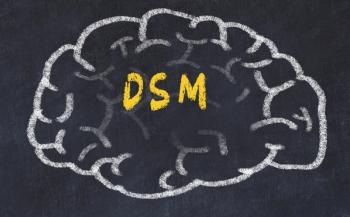
Study Links Divorce to Genetic Predispositions for Psychiatric Disorders
Key Takeaways
- Individuals with higher genetic predispositions for psychiatric disorders are more likely to experience divorce.
- The study analyzed data from 2.8 million Swedish residents, revealing higher genetic risk scores in divorced individuals.
A new study suggests some people have genetic predispositions for psychiatric conditions that may influence their risk of divorce.
A new study from Rutgers Health found that individuals who get divorced have higher genetic predispositions for psychiatric disorders, like depression, anxiety, and substance use disorders, even if the conditions are never developed.
The study analyzed marital histories and genetic risk data from 2.8 million Swedish residents born between 1950 and 1980, according to a press release. Researchers found that those who experienced divorce had higher genetic risk scores for psychiatric conditions than individuals in stable marriages.1 Even while excluding people who showed signs of developing a predisposed condition, the trend persisted.
The study tracked marriages and divorces through 2018, and genetic risk scores were calculated based on psychiatric diagnoses among extended family members. Researchers examined 10 psychiatric conditions, including major depression disorder (MDD), anxiety disorders, obsessive-compulsive disorder, bipolar disorder, schizophrenia, anorexia nervosa, alcohol use disorder, drug use disorder, attention-deficit/hyperactivity disorder, and autism spectrum disorder.1
Researchers found genetic predispositions were especially strong in individuals divorced multiple times. Individuals who divorced 3 or more times had genetic risk scores for depression and anxiety that nearly matched patients diagnosed with the conditions. Women exhibited higher genetic risk scores across all disorders compared with men. Individuals who remarried and maintained a stable second marriage showed lower genetic risk scores than those who divorced again or never remarried.
"These genetic predispositions influence major life outcomes for us in a multitude of ways, and oftentimes people don't think about the association that genetic predispositions might have on a life outcome like divorce," said lead author Jessica Salvatore, an associate professor of psychiatry with Rutgers Robert Wood Johnson Medical School.
A 2020 study reinforces the findings, claiming that a separated or divorced marital status was 1 of the top sociodemographic correlates for MDD.2 Women were also found to be more frequently experiencing MDD than men. A 2019 study found that divorce is a risk factor in patients experiencing treatment resistant depression (TRD).3 A 2022 systematic review of studies on midlife suicide found that of 62 articles used, marital dissolution increased suicide risk by more than 3 times.4
Researchers said the recent findings suggest genetic factors may influence divorce risk through multiple pathways, as individuals with higher genetic risk scores might be more prone to traits that challenge relationships, like impulsivity or emotional instability. These predispositions may affect how individuals choose partners or respond to relationship stress.1
Marriage is associated with lower levels of the genetic risk, as those in stable marriages had a lower genetic risk score across all disorders compared to those divorced or who had never married.
"Beyond documenting the nature of these associations, there are a few practical implications," Salvatore said. "One of the things that our study can help bring awareness to is that even if an individual is not personally affected by a disorder, carrying genetic predispositions for these disorders can be destabilizing for a relationship."
References
1. Genetic risk for mental health issues is linked to higher divorce rates. News release. January 14, 2025. Accessed January 14, 2025.
2. Gutiérrez-Rojas L, Porras-Segovia A, Dunne H, et al.
3. Li KX, Loshak H.
4. Qin P, Syeda S, Canetto SS, et al.
Newsletter
Receive trusted psychiatric news, expert analysis, and clinical insights — subscribe today to support your practice and your patients.







